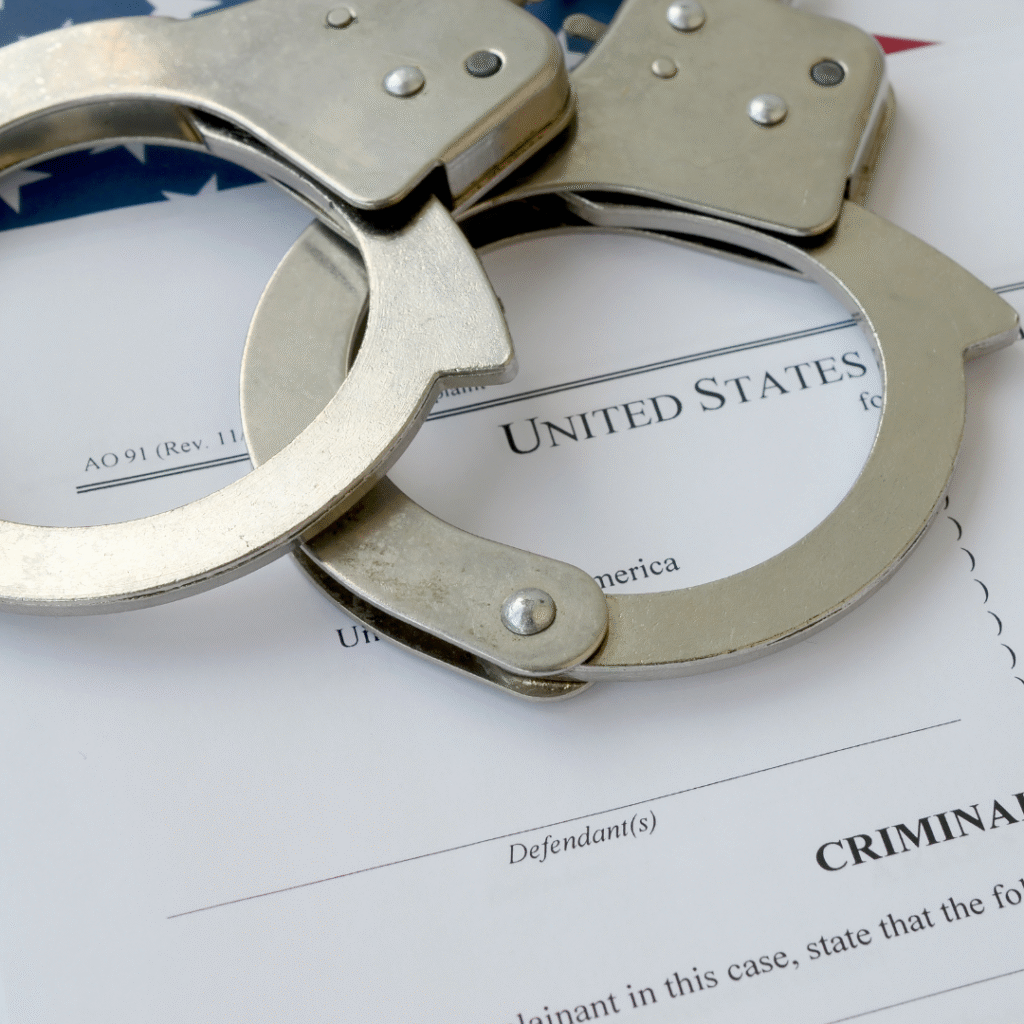$100M Adderall Distribution Fraud: Digital Health CEO and President Convicted

December 10, 2025 | JacobiJournal.com — In a high-profile case highlighting the dangers of unregulated telemedicine, two top executives of a California digital health company have been convicted in a $100 million Adderall distribution fraud scheme. Ruthia He, the company’s founder and CEO, along with David Brody, the clinical president, were found guilty of illegally distributing stimulants online and submitting fraudulent health care claims. Authorities say the scheme not only defrauded federal programs but also endangered patients by creating an unmonitored pipeline for controlled substances. How the Adderall Distribution Fraud Scheme Operated Federal prosecutors in San Francisco announced that Ruthia He, founder and CEO of Done, and David Brody, the company’s clinical president, were convicted for orchestrating a massive Adderall distribution fraud. The executives ran an online telehealth platform, misleading patients into subscribing for Adderall and other stimulant medications. Authorities reported that the defendants submitted fraudulent claims to health care programs while simultaneously targeting patients through social media advertising. Over the course of the scheme, Done distributed tens of millions of pills, generating profits while endangering public safety. He was also convicted of conspiring to obstruct justice. Why Telehealth Became a Vehicle for Fraud Investigators noted that telehealth platforms, while designed to increase access to care, can be exploited if proper oversight is absent. He and Brody allegedly took advantage of lax online prescription regulations, offering easy access to controlled substances without thorough medical evaluation. Officials warn that these practices undermine trust in digital health solutions and highlight the importance of strict telemedicine compliance. “Patient safety must never be compromised for profit,” emphasized Acting Assistant Attorney General Matthew D. Galeotti. What Officials Are Saying About the Case U.S. Attorney Craig H. Missakian stated that the convictions “underscore the ethical responsibility of medical professionals to prioritize patient wellbeing over financial gain.” DEA and HHS-OIG investigators added that this is one of the largest telehealth-related controlled substance fraud cases in recent history. The case also reflects the growing need for federal and state regulators to monitor online prescription practices, especially as digital health services continue to expand nationwide. How Patients and the Health Care System Were Impacted The Adderall distribution fraud carried out by the company had serious consequences for patients, including increased risks of addiction, misuse, and overdose. Health care programs were defrauded as the company submitted millions of dollars in false claims. Experts warn that this case serves as a cautionary tale for patients using online health services and for regulators working to protect public health. Read the full official DOJ press release here for detailed information. FAQs: $100M Adderall Fraud Case Who were convicted in the $100M Adderall distribution fraud case? Ruthia He, CEO of Done, and David Brody, the company’s clinical president, were convicted for illegal Adderall distribution and health care fraud. How did the company illegally distribute Adderall? The executives used an online telehealth platform and social media advertising to offer subscriptions for Adderall, bypassing proper medical evaluation. Which government agencies investigated the case? DOJ, DEA, HHS-OIG, IRS Criminal Investigation, and the Northern District of California U.S. Attorney’s Office led the investigation. What were the consequences of the Adderall distribution fraud for patients and the health care system? The Adderall distribution fraud exposed patients to risks of addiction, misuse, and overdose, while health care programs were defrauded of millions of dollars through false claims. This case highlights the need for stronger oversight of telehealth services and controlled substance prescriptions. Protect yourself and your community from online prescription scams. Subscribe to JacobiJournal.com for the latest updates on health care fraud, regulatory oversight, and digital health news. 🔎 Read More from JacobiJournal.com:
DOJ-HHS False Claims Act Working Group Intensifies Enforcement After $14.6B Takedown

August 11, 2025 | JacobiJournal.com – Following the historic $14.6 billion healthcare fraud takedown, federal agencies are doubling down on enforcement efforts under the reactivated False Claims Act Working Group, signaling an aggressive new era of oversight targeting fraudulent billing across the healthcare industry. The interagency team—led by the Department of Justice (DOJ) and the Department of Health and Human Services (HHS)—has not only revived the Working Group but is reportedly expanding its reach into newly flagged sectors, including behavioral health, teletherapy, and rural clinic billing models. New Investigations Already Underway According to DOJ insiders, a second wave of investigations is now underway, focusing on fraudulent claims involving telehealth services, durable medical equipment (DME), and unnecessary genetic testing. These schemes often prey on vulnerable populations and exploit regulatory gaps that emerged during the pandemic. While the initial healthcare fraud takedown charged 324 defendants—including medical professionals, clinic operators, and telehealth company executives—officials warn that this was just the “first phase” of a longer-term crackdown. “False Claims Act enforcement is now a frontline priority,” stated an official familiar with the task force. “We’re looking at everything from upcoded services to kickback arrangements involving marketing firms and call centers.” Enhanced FCA Enforcement Tools in Play Key to this effort is the strategic use of the False Claims Act (FCA), which allows the government—and whistleblowers—to bring civil actions against entities defrauding federal healthcare programs. By leveraging FCA provisions, the DOJ recovered more than $2.7 billion in healthcare fraud settlements in 2024 alone. As part of the intensified enforcement strategy, the DOJ-HHS Working Group is coordinating with: These collaborations are supported by enhanced data analytics tools that allow agents to identify anomalous billing patterns across Medicare, Medicaid, and TRICARE in near real-time. This integrated approach strengthens the government’s ability to execute large-scale healthcare fraud takedown operations, ensuring that fraudulent providers are identified and prosecuted efficiently. Industry Bracing for Fallout Legal analysts say the revived working group has put the industry on alert. “With this level of federal scrutiny, even compliant providers need to reassess their billing practices, referral relationships, and marketing vendors,” said a healthcare fraud defense attorney. “The government isn’t just targeting bad actors—they’re examining entire care delivery ecosystems.” In the wake of the takedown, several health systems and DME suppliers have launched internal audits, fearing that even minor regulatory violations could result in federal scrutiny or whistleblower claims. Compliance Tips for Providers Providers and healthcare businesses should take the following immediate actions to mitigate exposure: Experts caution that in today’s climate, ignorance of the law offers no defense. What’s Next? More arrests and settlements are expected in the coming months as the DOJ and HHS continue reviewing data and evidence collected during the healthcare fraud takedown operation. Industry stakeholders should anticipate ongoing False Claims Act enforcement waves well into 2026. For full case summaries and press releases, visit the DOJ’s official newsroom here. FAQs: DOJ False Claims Act Enforcement Update What is the False Claims Act Working Group? The DOJ-HHS False Claims Act Working Group is a task force dedicated to investigating and prosecuting healthcare fraud involving federal programs like Medicare and Medicaid. Why is FCA enforcement increasing now? Federal agencies are responding to widespread abuse of healthcare programs—especially telehealth and DME schemes—uncovered during the $14.6 billion fraud bust. The revived working group enables cross-agency coordination for faster and broader enforcement. How can healthcare providers avoid False Claims Act liability? Healthcare providers must ensure accurate billing, avoid illegal referral arrangements, and maintain documented compliance programs. Regular audits and staff training are essential. Subscribe to JacobiJournal.com to receive weekly enforcement updates, whistleblower case alerts, and FCA litigation insights tailored for legal, compliance, and health sector professionals. 🔎 Read More from JacobiJournal.com:
National Health Care Fraud Data Fusion Center Boosts DOJ-HHS Enforcement

July 25, 2025 | JacobiJournal.com – The National Health Care Fraud Data Fusion Center, jointly operated by the Department of Justice (DOJ) and Department of Health and Human Services (HHS), is rapidly transforming how federal authorities investigate and prosecute healthcare fraud. While first announced in late June, recent enforcement actions confirm the center’s pivotal role in accelerating the detection of fraudulent activity across Medicare, Medicaid, and telehealth platforms. How the Data Fusion Center Strengthens Fraud Enforcement The Data Fusion Center integrates real-time data analytics from multiple government agencies, enhancing the False Claims Act Working Group’s ability to identify anomalies, track financial flows, and connect disparate fraud schemes. This approach allows authorities to proactively flag high-risk providers and patterns before significant losses occur. The center’s work has already supported the 2025 National Health Care Fraud Takedown, which charged 324 defendants in schemes totaling $14.6 billion, including $1.17 billion in telehealth and genetic testing fraud. These figures represent the largest coordinated enforcement effort in healthcare fraud to date, demonstrating the fusion center’s growing impact. Impact on Telehealth Compliance and Analytics Telehealth providers, laboratories, and billing entities face heightened scrutiny as the fusion center applies advanced data analytics to monitor compliance. Organizations involved in telemedicine are particularly vulnerable, with the DOJ leveraging the center’s insights to trace billing irregularities linked to genetic testing scams and telehealth consults. This proactive enforcement model marks a shift from reactive investigations to continuous surveillance of healthcare transactions. As a result, companies in the healthcare sector are advised to strengthen their internal compliance protocols and regularly audit billing practices to avoid becoming targets of federal investigations. For more information on how healthcare fraud is tracked and prosecuted, visit the DOJ Health Care Fraud Unit resource page. What’s Next for the National Health Care Fraud Data Fusion Center Officials from both the DOJ and HHS suggest that the fusion center will continue to evolve, incorporating artificial intelligence and cross-border data sharing to combat increasingly sophisticated fraud schemes. Upcoming enforcement waves are expected to target providers exploiting risk adjustment models, prescription fraud, and unregulated telehealth services. With billions at stake, the center’s data-driven strategy is poised to redefine federal fraud enforcement, holding providers and corporations to higher standards of accountability. FAQ: National Health Care Fraud Data Fusion Center What is the National Health Care Fraud Data Fusion Center? The National Health Care Fraud Data Fusion Center is a joint initiative by the DOJ and HHS that uses real-time data analytics to detect and prevent healthcare fraud across Medicare, Medicaid, and telehealth services. How does the fusion center impact telehealth providers? Telehealth providers are under increased scrutiny as the fusion center analyzes billing data to identify fraudulent or non-compliant practices, especially in genetic testing and telehealth consultations. What were the results of the 2025 healthcare fraud takedown? The 2025 enforcement action charged 324 defendants with healthcare fraud schemes totaling $14.6 billion, with a significant portion linked to telehealth and genetic testing scams. Which schemes were uncovered by the fusion center? Authorities identified transnational networks billings exceeding $10.6 billion in DME fraud (Operation Gold Rush), telehealth/genetic testing fraud, opioid-related kickbacks, and false hospice claims. Where can I report suspected healthcare fraud? Reports of healthcare fraud can be submitted to the HHS Office of Inspector General (OIG). Stay informed on healthcare fraud enforcement and telehealth compliance developments. Subscribe to JacobiJournal.com for the latest insights on regulatory actions and industry risks. 🔎 Read More from JacobiJournal.com:
OJ Indicts 49 in $1.17 Billion Telehealth Genetic Testing Fraud

July 2, 2025 | JacobiJournal.com – The Department of Justice (DOJ) has announced the indictment of 49 individuals connected to a massive telehealth genetic testing fraud scheme that defrauded Medicare of approximately $1.17 billion. This national enforcement action marks one of the most significant takedowns targeting the intersection of telemedicine and genetic testing abuse. National Crackdown on Telemedicine Scams Federal prosecutors revealed that defendants operated fraudulent telehealth consultations to justify unnecessary genetic testing and medical equipment. These fake medical services led to thousands of false Medicare claims for tests that patients did not need, did not request, or never received. Investigators discovered that telemedicine companies collaborated with laboratories and marketing firms to orchestrate the scam, exploiting both patients and Medicare’s billing systems. The DOJ emphasized that while telehealth offers legitimate benefits, fraudsters have weaponized the convenience of virtual care to conceal large-scale fraud. Financial and Ethical Impact of Telehealth Genetic Testing Fraud Authorities stated that this scheme drained over a billion dollars from Medicare, ultimately burdening taxpayers and undermining trust in remote healthcare services. Fraudulent genetic testing not only results in financial losses but also exposes patients to unnecessary medical procedures and the risk of compromised personal health data. DOJ Reinforces Commitment to Healthcare Integrity The DOJ reiterated its commitment to pursuing healthcare fraud aggressively, especially as telemedicine remains a growing field. Officials encouraged healthcare providers to strengthen compliance efforts and urged the public to remain vigilant against suspicious medical services. For additional information on how to recognize and report Medicare fraud, visit the Centers for Medicare & Medicaid Services (CMS) official resource page. What’s Next for Enforcement The DOJ hinted that further investigations are underway, with more arrests expected in related telehealth and genetic testing schemes. Federal prosecutors have emphasized that this is only the beginning of a larger nationwide effort to dismantle complex fraud networks exploiting Medicare through telemedicine. As telehealth genetic testing fraud continues to evolve, authorities are enhancing interagency collaboration between the DOJ, FBI, and the Department of Health and Human Services to track and intercept these fraudulent operations. Additionally, the DOJ plans to leverage advanced data analytics and whistleblower tips to identify hidden connections between healthcare providers, laboratories, and telehealth platforms that may be facilitating or concealing fraud. This July enforcement wave reflects a broader strategy to safeguard public healthcare funds, strengthen Medicare integrity, and restore confidence in digital health services by ensuring that telehealth remains a legitimate and safe avenue for patient care. FAQ: Understanding Telehealth Genetic Testing Fraud What is telehealth genetic testing fraud? Telehealth genetic testing fraud involves scammers using virtual healthcare platforms to order unnecessary or fake genetic tests. Fraudsters often collaborate with labs and marketing firms to bill Medicare for services that were never needed or provided. How can patients avoid falling victim to telehealth genetic testing fraud? Patients should consult their primary care physician before agreeing to any genetic tests offered through telehealth. They should also verify that the provider is legitimate and be cautious of unsolicited offers for medical testing. How do authorities detect and investigate telehealth genetic testing fraud? Authorities like the DOJ and CMS use data analytics to identify abnormal billing patterns and networks of providers submitting excessive claims for genetic testing. Investigations often trace financial transactions to uncover fraudulent schemes. Where can I report suspected telehealth genetic testing fraud? You can report suspected telehealth genetic testing fraud directly to Medicare here or contact the Office of Inspector General (OIG) fraud hotline. Stay informed on telehealth genetic testing fraud cases and healthcare enforcement actions. Subscribe to JacobiJournal.com for weekly updates on fraud prosecutions, regulatory crackdowns, and compliance news. 🔎 Read More from JacobiJournal.com: